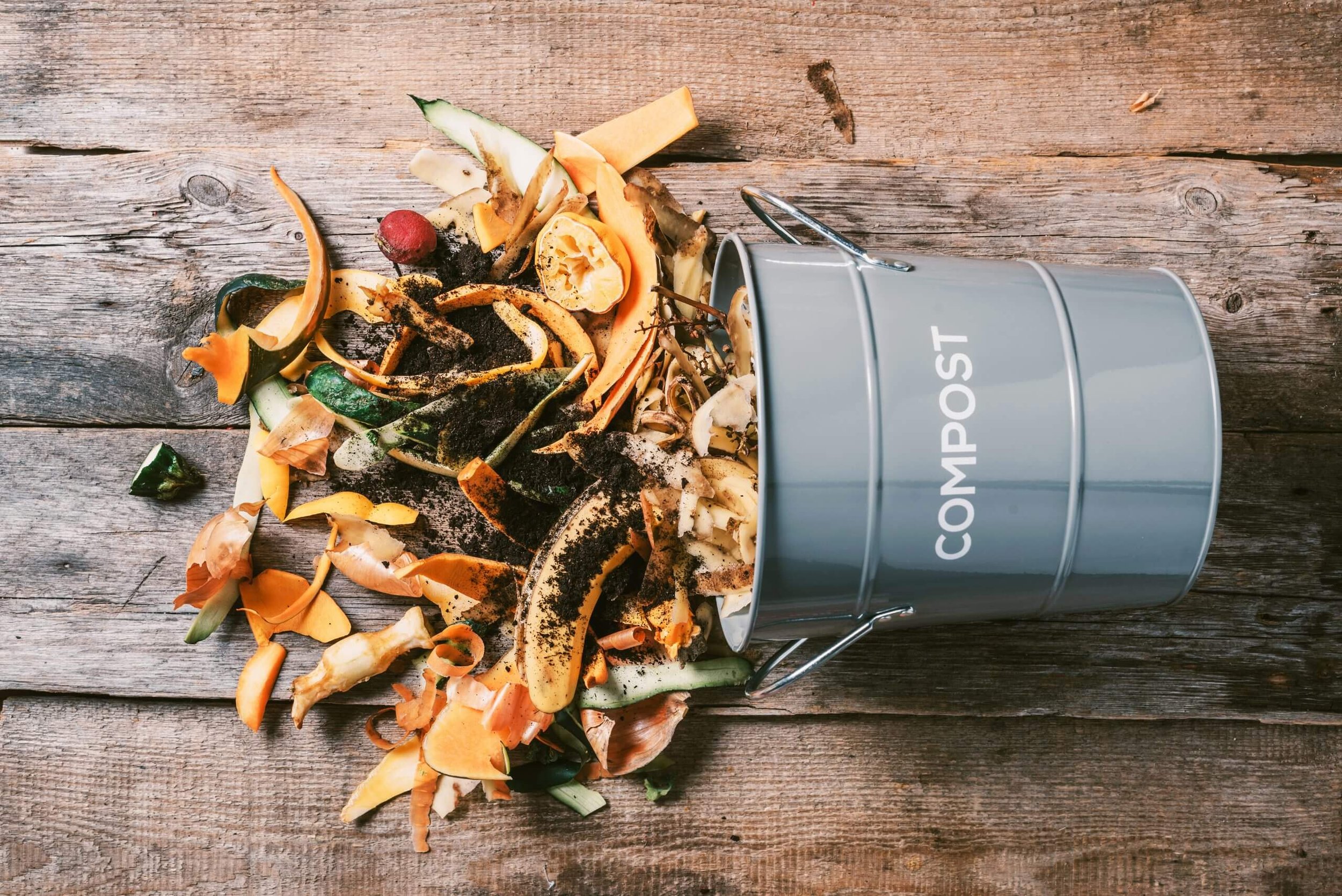Own Your Food Waste
“There is no such thing as waste. Nature has no waste, only humans have waste.”
Food waste is a hot topic in environmental and food justice circles. Here’s a deep dive into how we waste food, what’s being done to reduce waste, and how we can be better. Let’s own our food waste.
Canada has one of the highest waste per capita in the entire world. Just under 60% of all the food produced in this country ends up as waste. In Ontario, the 805 landfills that dot the province are expected to reach capacity by 2041. In 2015, the province estimated that approximately 32% of all landfill waste is food waste. This accounts for 3.7 MILLION tonnes of food that is thrown out every year. The vast majority of this organic matter is sealed in plastic bags, meaning that instead of breaking down into compost, this organic waste emits methane. Methane has a warming effect 80 times greater than CO2 over the first 20 years after it reaches the atmosphere.
Clearly there are huge inefficiencies in our food system. According to FoodShare Ottawa, 50% of wasted food happens from the farm to the retailer. A shocking CBC article last week detailed 13% of all fruits and vegetables never even get harvested, and are instead left to rot in the fields. The other 50% of food waste occurs at the household level.
In 2016 Ontario announced its intention to revamp its waste management strategy. The Province defines different types of waste, how each type is handled, where it can be processed, recycled or composted. The goal is to shift towards a circular economy, where “waste” can be diverted into an asset as opposed to the traditional system of produce-use-dispose.
The municipality at the forefront of the circular economy is Guelph-Wellington. Supported by a $10 million federal competition, the city has committed to a 50-50-50 goal by 2025. 50% increase in food security. 50 new circular collaborative businesses. Increase economic revenues by 50% by recognizing the value of “waste”. Two years in, and the initiative has already hit several key markers, including 181 new circular collaborative businesses. They even created the world’s first ever circular meal.
Community Solutions (and How You Can Get Involved)
There are a number of community driven initiatives out there trying to address food waste. They are often collaborative and volunteer driven organizations, powered by concerned community members with little in the way of public support or funding.
The box of life is a social enterprise that facilitates at-home vermiculture composting. This includes providing worms and educational material, building at-home compost units, and hosting workshops. They currently have about 400 units throughout the city, and double that in worm sales to those who have built their own units.
“Most people divert between 50-80% of their food scraps. But you can throw those numbers away because it’s really much higher,” says Akil, founder of Box of Life. “We’ve found that once people realize how much they waste there is a trickle down effect on the rest of their lives. How they handle their waste and the kind of food they eat.”
Their next phase is to try and bring this system to the community level, and are working with businesses and organizations like Arlington 5 to kickstart this initiative.
Foodshare Ottawa is a volunteer and community driven organization that works with business donors to redistribute food to over 39 charities throughout Ottawa. Last month they rescued 3125 meals!
If you are interested in getting involved, you can Donate. If you have interest in becoming a food rescuer, they are always looking for volunteers.
Ottawa Community Food Partnership
OCFP is involved in our own food rescue initiatives. Velma the Veggie Van and our drivers rescued 52,000KG of food in 2021 from restaurants, bakeries, grocery stores and farms. This food was distributed to a number of agency partners such as respite centres, food centres, drop-in health clinics, and our community fridge network.
Our rescues were also used to support Cooking For A Cause (CFACO), the program that connected restaurants with agency partners to cook fresh and healthy meals on a weekly basis.
At one time, CFACO was making and distributing nearly 5,000 meals a week, but due to a lack of funding, the program is set to end on December 15, 2022. If you are interested in supporting CFACO you can write your local representative or donate.
Better Systems In-action.
Community organizations and initiatives are excellent drivers of change. BUT they need public support and backing to become sustainable and broaden their impact. There are legislative and structural changes that need to be made in order to facilitate change. We know this is possible, with examples like South Korea as a success story.
In 1996, South Korea had a recycling rate of about 2.6% on all their food waste. Today that number is nearly 100%. The remarkable 180 in policy was done by making composting as easy as possible. The country has designed special bags, costing about 0.20$ apiece, which are expressly for food scraps. These bags can be picked-up daily and the price of the bags offset about 35% of the cost of transportation.
As a result, there has been exponential growth in urban agriculture initiatives throughout South Korea in order to divert this now publicly available resource.
Therein lies the crux of the change. We have to shift our mentality and start looking at this “waste” as a public resource that can be used to build a better, happier, and healthier community.

